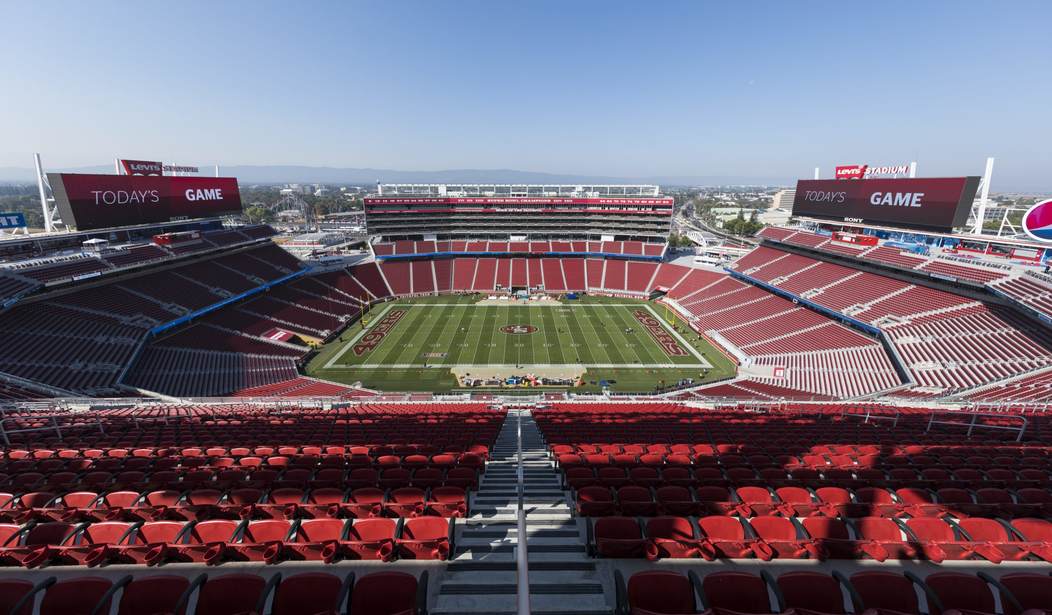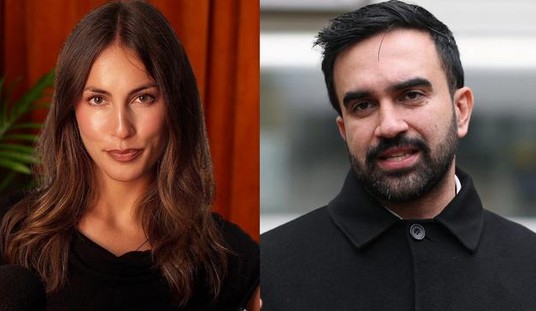For my health, sanity and productivity, I quit watching the NFL regularly on television about the time Clint Longley single-handedly beat the Washington Redskins on Thanksgiving Day, 1974. I tuned in periodically in the early ’80s, but gave it up entirely by the end of the decade — in part because I was then living abroad. When I returned to the States nearly a decade later, I found I no longer cared, and eventually even gave up on the Super Bowl.
There was never the slightest chance I would go back, but even if I wanted to, I couldn’t, as I cut the cable long ago and learned I can live quite happily and more cheaply without it — no sports, no CNN, no Fox News. But even if I hook up the old satellite dish again here in my rural New England community, I still wouldn’t watch pro football now that the NFL and some of its players have injected racial politics into a sport that, more than any other, pioneered on-field integration and got white America cheering for black athletes.
So I found the president’s remarks in Alabama rather refreshing.
President Donald Trump has ratcheted up the national controversy over black National Football League players who refuse to stand while the U.S. National Anthem is played before games. During a Friday night political rally in Alabama, Trump called on fans to boycott teams that allow players to engage in that particular form of protest.
The league’s TV ratings have slid since quarterback Colin Kaepernick, then the leader of the San Francisco 49ers, began the trend in September 2016.
‘Wouldn’t you love to see one of these NFL owners, when somebody disrespects our flag, to say, “Get that son of a b***h off the field right now! He is fired. He’s fired!”‘ Trump boomed. His crowd applauded and chanted ‘USA! USA!’
There’s no question that the has-been Kaepernick exacerbated the league’s slide in the ratings, but he alone is not responsible for it. The games have lengthened from three hours to four, while providing the same minuscule amount of “action” — eleven minutes. The players have grown ever more interchangeable; the teams might just as well field squads of tattooed robots. To illustrate just how far off the rails the league has gone, Los Angeles — a city that has no use for pro football and proved it could live without the Rams for years — now has two teams.
And the injuries — always the game’s dirty little secret — have become ever more damaging, even as the rules are constantly tinkered with, and the refs throw more flags. The players have simply become too big, too fast, and too heavily armored. Even though it’s unlikely to succeed, the recently announced lawsuit by the family of the late Aaron Hernandez will surely focus national attention on the issue of brain damage:
On Thursday, former New England Patriots tight end Aaron Hernandez, who committed suicide in April while serving a life sentence for murder, was posthumously diagnosed with a “severe” case of chronic traumatic encephalopathy, a degenerative brain disease linked to head trauma. The New York Times reported that diagnosis, as well as the fact that Hernandez’s lawyer, Jose Baez, plans to sue the NFL and the Patriots for $20 million on behalf of Hernandez’s 4-year-old daughter.
“Aaron Hernandez succumbed to the symptoms of CTE,” the suit states, in part. “As a result of the defendants’ conduct and the injury experienced by Aaron, Avielle Hernandez was deprived of the love, affect, society and companionship of her father while he was alive.”
The NFL responded to news of the suit Friday, telling reporters on a conference call, “We intend to contest the claims vigorously,” according to USA Today. The report noted that the suit could face a potential issue that could derail the claim that the Patriots and/or the NFL should be held financially responsible:
The lawsuit could face one major league hurdle: Hernandez was not listed among the players who opted out of a concussion settlement with the league.
Yes, yes, Hernandez was also a murdering thug, one of many thugs in a league that seems to court them. And, no, the NFL and football did not cause his murderousness, as the Times notes:
It’s a natural presumption to make, given the tragic suicides of Junior Seau, Dave Duerson and other former football players diagnosed post-mortem with C.T.E. And it’s a question that the courts will have to wrestle with.
On Friday, the National Football League vowed to defend itself against a lawsuit filed on behalf of Mr. Hernandez’s daughter and fiancée, who claims that his injuries and death were a direct result of his participation in football.
The science itself — like most attempts to link brain biology to behavior — is murkier. In recent decades, researchers have made extraordinary strides in understanding the workings of brain cells, neural circuits and anatomy. Yet drawing a direct line from those basic findings to what people do out in the world is dicey, given the ineffable interplay between circumstance, relationships and personality.
“There’s no serious argument about whether violence comes from the brain,” said Owen Jones, director of the MacArthur Foundation Research Network on Law and Neuroscience at Vanderbilt University. “It’s just hard to make a credible claim that a particular brain injury has caused a particular act of violence.”
Players like Kaepernick and Hernandez give the league a bad name, so it’s hardly surprising that the NFL’s ratings are down again this season. Explanations and excuses offered include the weather (hurricanes!), low quality of play and shortening attention spans — although who actually watches an NFL broadcast intently between trips to the fridge and visits to the john?
CBS has suffered early. Per Anthony Crupi of Ad Age, through the first two weeks of the season, CBS’s Sunday NFL windows had averaged 13.9 million viewers, down 10% versus 15.2 million last year. Sports Media Watch said CBS’s 8.4 rating for its Week 2 single header lineup was the lowest for a Week 2 single-header since at least 1998.
NBC had a particularly ugly night with the Packers-Falcons. The game drew 20.2 million, well down from last year’s Week 2 game (Packers-Vikings, 22.8 million) and the Seahawks-Packers in 2015 (26.4 million). It was the least-watched Week 2 Sunday Night Football game since 2008. Crupi reported NBC’s three primetime games so far had averaged 22.1 million viewers, down 7% from 2016.
But if you ask this former fan, the rot runs deeper. Football, which is practically the state religion in Texas and across the South, used to be closely tied up with patriotism and love of country. The militaristic component of the sport, which was presented as akin to war, appealed especially to red-state dwellers. But sportscasters and sportswriters are overwhelmingly leftist in their outlook, and their eagerness to turn Kaepernick into a civil-rights icon has repelled a sizable section of football’s core audience — and one that, by the current evidence, is growing.
Naturally, the NFL commissioner played right into Trump’s hands:
NFL commissioner Roger Goodell fired back at President Trump on Saturday for encouraging league owners to remove players who take a knee during the national anthem, saying Trump’s “divisive comments” show “an unfortunate lack of respect for the NFL.”
“The NFL and our players are at our best when we help create a sense of unity in our country and our culture,” Goodell said in a statement. “There is no better example than the amazing response from our clubs and players to the terrible natural disasters we’ve experienced over the last month.”
“Divisive comments like these demonstrate an unfortunate lack of respect for the NFL, our great game and all of our players, and a failure to understand the overwhelming force for good our clubs and players represent in our communities.”
The NFL chief’s comments came the morning after Trump told a crowd at a rally for Alabama Senate candidate Luther Strange (R) that NFL players will stop kneeling if fans left games. “When people like yourselves turn on television and you see those people taking the knee when they are playing our great national anthem – the only thing you could do better is if you see it, even if it’s one player, leave the stadium,” Trump said. “I guarantee things will stop.”
The divisiveness didn’t start with Trump, however, it started with the NFL itself, which appears to be emulating Hollywood in its attempt to drive away half of its potential audience. But in the NFL’s case, it’s even worse, considering that Real Americans are their audience. Unless the league radically reforms, it’s headed for the last roundup.
Let’s give the last word to that great Cowboy, Dandy Don Meredith:









Join the conversation as a VIP Member